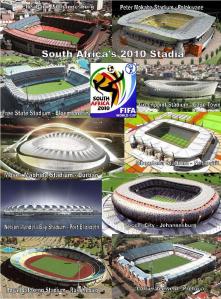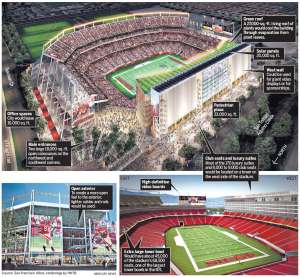 Good Morning (if you live in the U.S.). No matter where you live, we are now just about 48 hours away from kickoff of the opening match between the host nation South Africa, and Mexico who have looked very impressive in their warm-ups. I know home crowd helps, but I’m thinking that Mexico will walk away with the win in the opener. I do not remember where I saw the statistics, and I do not know if they are accurate, but I believe that around 80% of teams which win their opening match in the World Cup advance to the next round. A draw in the first game gets a team through about 50% of the time, and a loss gets a team through about 13% of the time if I remember correctly. The first match is an important one, and really does set a tone for the following weeks.
Good Morning (if you live in the U.S.). No matter where you live, we are now just about 48 hours away from kickoff of the opening match between the host nation South Africa, and Mexico who have looked very impressive in their warm-ups. I know home crowd helps, but I’m thinking that Mexico will walk away with the win in the opener. I do not remember where I saw the statistics, and I do not know if they are accurate, but I believe that around 80% of teams which win their opening match in the World Cup advance to the next round. A draw in the first game gets a team through about 50% of the time, and a loss gets a team through about 13% of the time if I remember correctly. The first match is an important one, and really does set a tone for the following weeks.
I understand the World Cup is a big deal, once every four years I rearrange my schedule to allow myself to watch every match of the World Cup (a streak that dates back to 1990, when local TV where I lived did not show every match). What I find curious is the number of financial institutions which seem to think it is important to release an economic report about the World Cup as well as predictions of who will do well and who will not over the next month. Just a few days ago I discussed one such report released by Goldman Sachs. Well Goldman Sachs is not alone, I just came across a blog discussing a similar report released by JP Morgan. The author of the blog who holds a degree in economics says he shudders at the degree of quantitative analysis done in the report. He notes that JP Morgan uses this analysis to predict the strongest teams and that JP Morgan foresees a Spain vs England final. Reading through the blog some more, you’ll notice that some of these reports are claiming that if certain countries (such as Australia) make it to the final, there will be a sudden $8 billion of spending by individuals which magically appear in the economy. I can’t help but think that a good deal of this money is just money that would normally be spent on some other leisure activity within the economy, and is not necessarily a giant influx of spending by consumers. That said, a good World Cup by some countries could help certain businesses out such as pubs and sporting goods stores selling World Cup replica Jerseys (I’m wearing my Japan 2001 Confederations Cup jersey at the moment, so I know there are people who go out and buy these things).
Curiously, it appears I’m not the only one asking questions as to why several of the great financial institutions of the world are spending time, money, and effort of some of their best employees to publish World Cup reports which most individuals will have a hard time understanding exactly how the predictions are being calculated. This article makes some interesting comments comparing Goldman Sachs report with actual betting odds, while also making fun of the extent to which investment bankers should be trusted in making predictions in our current economic climate. It is curious to not that the betting odds for the top teams do match up very neatly with the Goldman Sachs predicted odds.



 Posted by nickwatanabe
Posted by nickwatanabe 